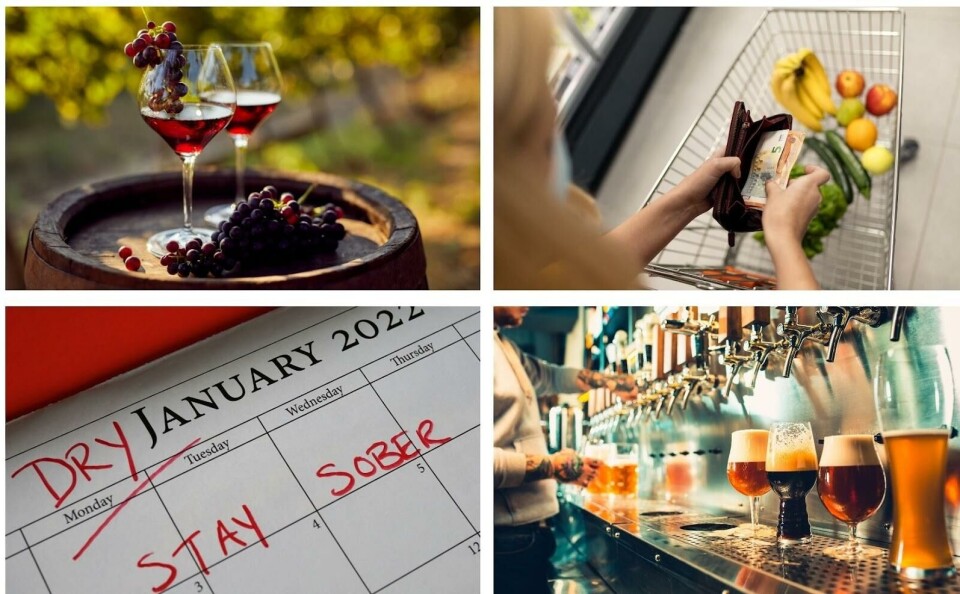-
Cyberattack on La Poste: are Christmas parcels impacted?
Parcel tracking services remain down for second day
-
Christmas gifts and food: How much are French households spending this year?
People are buying nine presents each on average
-
Confrontations with wild boar increase in France despite more hunts
Boar numbers are rising and the ‘unpredictable’ animals can cause serious injury
Four reasons why less wine is being drunk in France
Wine consumption has dropped from 120 litres per person annually in 1960 to just 40 litres in 2020

France’s national winemaker cooperative has called for producers to adapt and export more to cope with falling domestic consumption.
Les Vignerons coopérateurs de France said the industry had experienced a “sudden fall”.
France’s wine consumption has decreased from 120 litres per person annually in 1960 to just 40 litres in 2020.
The Connexion spoke to two experts to understand the reason for the drop.
Read more: ‘Sudden fall’: Concern over people drinking less wine in France
Read more: ‘I fight for wine in French culture, heritage and economy’
1. Generational change
Generational change is the main explanation for the decline, according to both experts contacted by The Connexion.
They said it had been driven by a series of laws that the French government had implemented to limit alcohol consumption.
As crazy as it might seem now, in 1956 it was necessary to ban alcohol from primary school canteens.
Then, in 1970, a law established for the first time a drink-driving threshold. The limit - 1.2 grams of alcohol per litre - is more than twice what is allowed today.
The presence of wine on French tables fell every year after these laws were introduced, said Mr Le Bras, relegated to only being present at dinner - as opposed to at every meal - or just at apéro time.
“New generations of consumers are getting their first contact with alcohol later,” said Bernard Farges, the president of the CNIV (Comité National des Interprofessions des Vins), an association that represents French wine producers.
In 1991, the loi Evin restricted advertising for alcoholic beverages on public broadcasting channels, dealing the industry a further blow.
2. Public health campaigns
The generational change is the direct consequence of the French state introducing legislation to fight alcoholism.
Similarly, public health campaigns have also had an impact.
“There was a real change around the 1980s. It was the death of daily wine consumption,” said Stéphane Le Bras, a wine historian and teacher at the Université Clermont-Auvergne.
“The decline is here because French people have been told to drink less. It is as simple as that.”
More and more public health campaigns were rolled out, sending the message that alcohol was a danger to be avoided.
One of the latest campaigns stated French people should drink no more than “10 drinks per week, two per day and not every day”.
That sits rather uncomfortably with the declaration of French president Emmanual Macron, who said he enjoyed two glasses of wine a day.
Read more: Pro-wine President Macron pleases industry but upsets doctors
The latest blow for the industry comes from Dry January, which sees people abstain from alcohol for the first month of the year.
Read more: Dry January grows in France but not funded like anti-smoking campaign
“All of these hygienist campaigns spread an idea of consumption that is close to abstinence,” said Mr Farges.
3. The slow and steady growth of beer consumption
Of course, winegrowers have adapted marketing strategies to contain the decline of wine consumption, mainly by growing better-quality grapes and eliminating low-quality wines. Entry-level wines now start from €5 to €7.
“The wine market reconditioned itself in the 1980s to contain its decline,” said Mr Le Bras.
But the industry saw the rise of another competitor: beer. It is an industry that has grown more popular among younger generations, fuelled by smart marketing strategy and a wider range of products.
Beer consumption in France has plateaued at around 31 to 33 litres per person per year over the last five years, according to figures from Statista. That compares with 40 litres per person per year for wine.
4. Rising prices
High inflation is another reason for falling wine consumption in France. Prices for wine increased by 9.8% from February 2022 to February 2023.
Less wine was bought in French supermarkets in 2022 than in the previous two years. It fell to 29 litres against 30 litres in 2021 and 32 litres in 2020, according to NielsenIQ.
“Wine is among the first products [to be] cut from people’s budgets,” said Mr Farges.
But Mr Le Bras rejected the economic argument calling it gaslighting.
“The youth is focused on healthcare, well-being, mental health and sanity. Wine is not part of that,” he underlined.
Read also
Rosé wine guide - a tour through France’s pink wine producing regions
The wine industry is in constant evolution in France and beyond
























